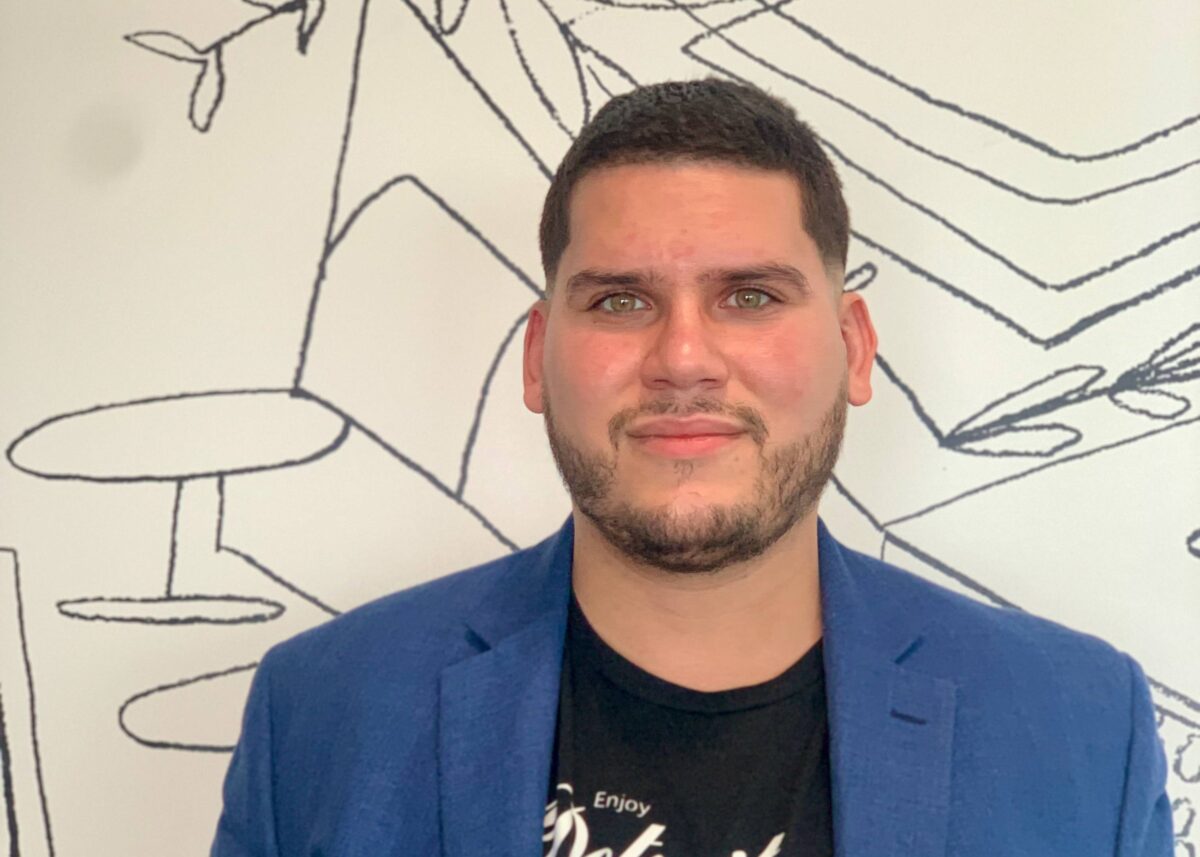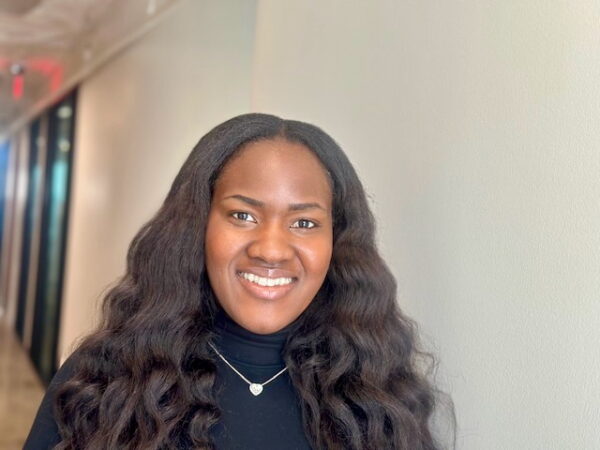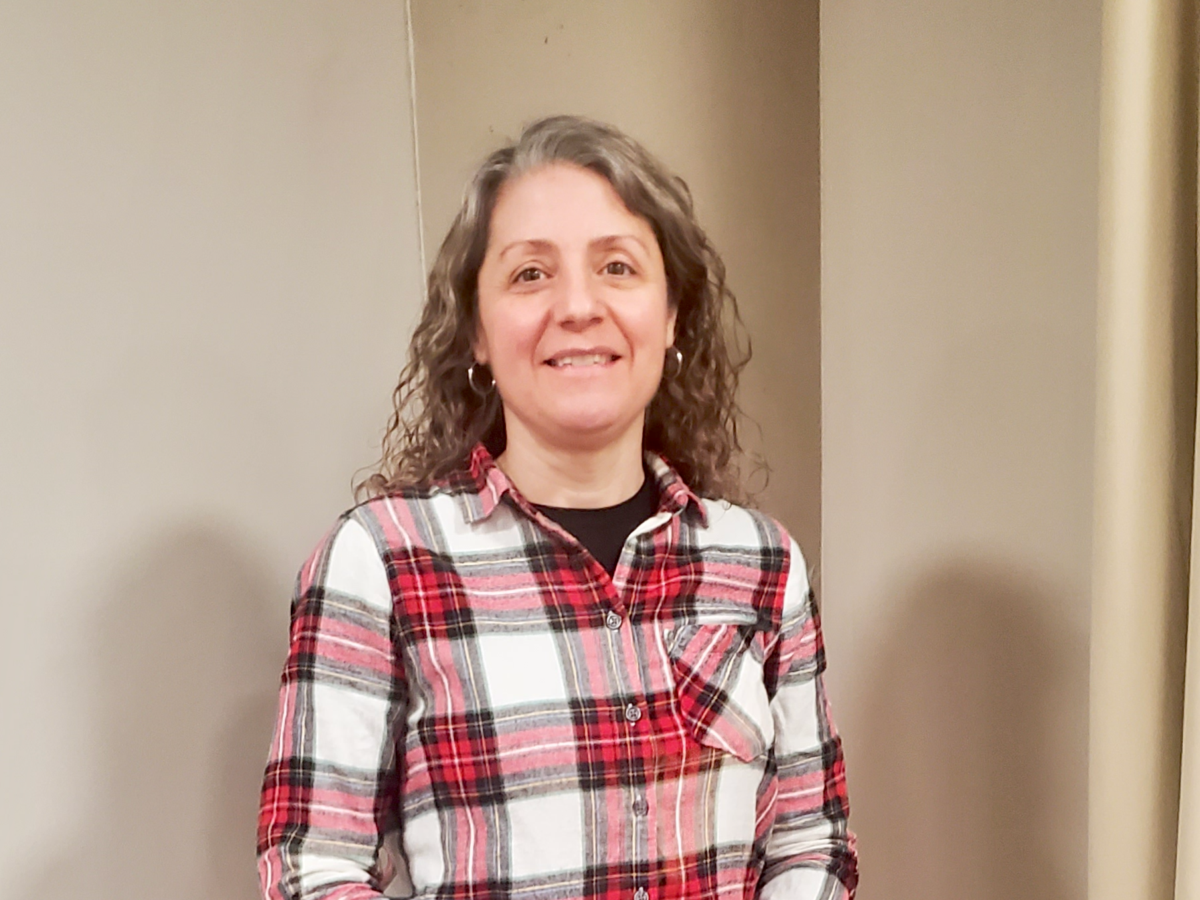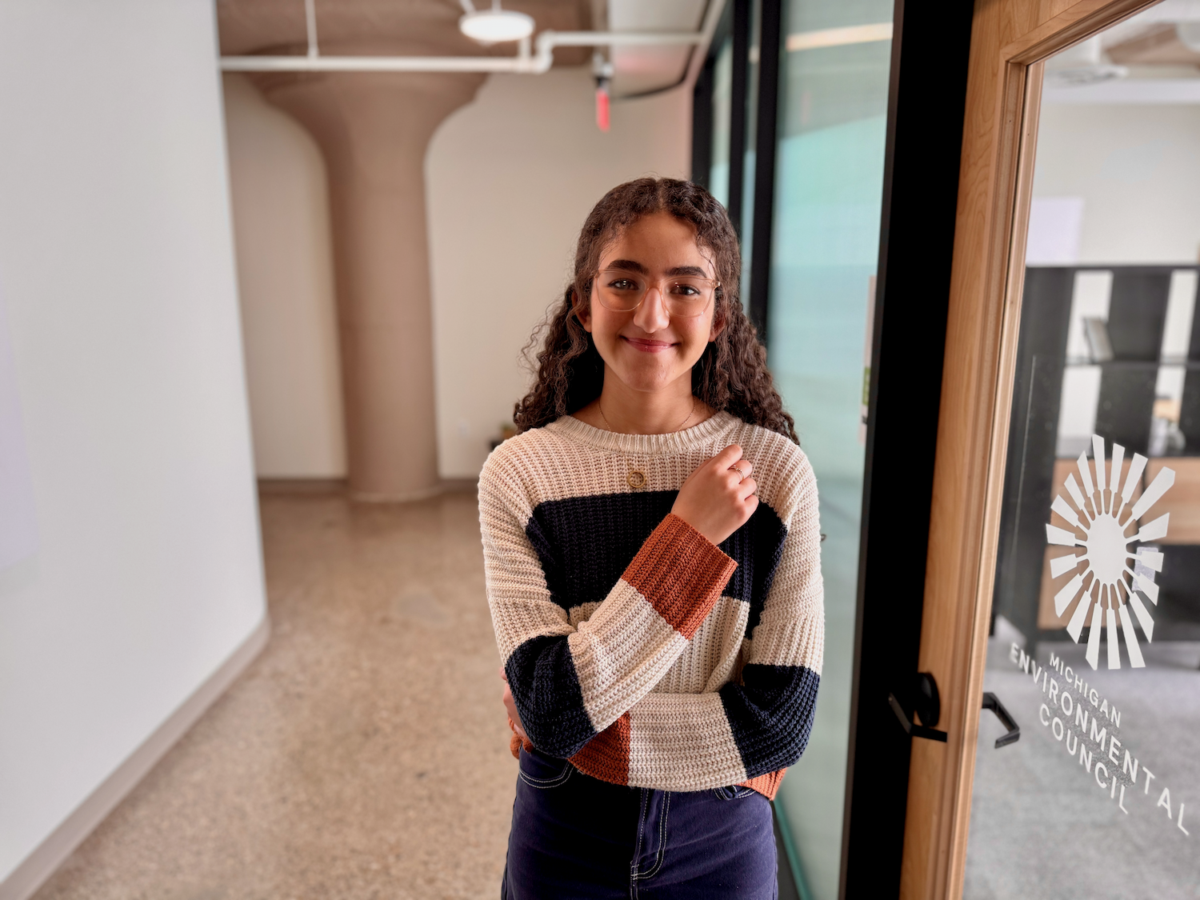Overview:
-Oscar Chapa works in Southwest Detroit and aims to inspire immigrants and underserved students.
-"I want to be the hero that I needed when I was younger," he says.
-Chapa says his ultimate goal is to join Detroit's school board.
This story is published as part of Planet Detroit’s 2025 Spring Neighborhood Reporting Lab, supported by The Kresge Foundation, to train community-based writers in profile writing. This year’s participants will focus on highlighting grassroots leaders driving positive change in Metro Detroit.
Oscar Chapa grew up in a Southwest Detroit neighborhood and today, he works there inspiring immigrants and other underserved students. He spoke with Planet Detroit about his goal of becoming a role model to young people through education and storytelling.
Can you introduce yourself and share a bit about your background?
My name is Oscar Chapa, and I’m currently working as an academic specialist at the Academy of Americas middle school in Southwest Detroit. This is my first year in education, and I’m also pursuing a master’s degree in Educational Leadership and Policy from the University of Michigan Marsal Family School of Education. Next year, I plan to be in the classroom as a Spanish teacher at a Detroit Public Schools high school. It’s a bit nerve-wracking but exciting. I’m also passionate about pursuing storytelling through the Planet Detroit Neighborhood Reporting Lab.
What inspired you to pursue a career in education?
Honestly, it started from a very personal place. I found myself with more financial flexibility and the opportunity to take a pay cut for something meaningful. I got into a program that would pay for my master’s if I worked in a school, so I leaped. Over time, I started seeing this job as more than just work. It’s a frontline opportunity to support immigrant and Spanish-speaking communities, especially English as a second language — ESL — students who need advocates.
As a first-generation student, what challenges did you face in higher education?
There was no roadmap for me. Being first-generation means you often can’t talk to your parents about your classes or academic theories because they haven’t been through it. Sometimes, sharing your experiences even comes across as “talking at” them, which can be isolating. It took me six years to earn my bachelor’s because I had to figure everything out myself: how to access financial aid, find resources, and deal with the emotional toll of constantly fighting for opportunities.
What motivates you to stay involved in education, especially for immigrant communities?
I want to be the hero that I needed when I was younger. Growing up in Detroit Public Schools, specifically Western International High School, I had teachers who stepped up for me, and I want to do the same for my students. My focus is on providing time and quality interactions with them — being present in a way that genuinely supports their growth, especially for those dealing with immigration-related fears and barriers.
What are your thoughts on the declining business activity in Southwest Detroit?
It’s heartbreaking, and it’s tied directly to immigration issues. Kids are scared to come to school, and their families are afraid for their safety. This fear affects the community as a whole. If students aren’t in school, businesses suffer because families start withdrawing from public life. It’s not just economic; it’s a deep social issue that needs addressing from both community leaders and policymakers.
What specific grades or age groups do you want to teach?
Right now, I’m working with middle schoolers, but my goal is to move to high school next year. I believe high school is where students start making real decisions about their futures, and that’s where positive role models are needed the most. That age group is mature enough to reflect on their experiences but still impressionable enough to benefit from strong mentorship.
How does your personal experience influence your teaching approach?
I grew up in Southwest Detroit, and being from the same neighborhood as many of my students allows me to relate to them on a deeper level. I’m not just teaching; I’m giving back to a community that shaped me. I want to show students that someone from their background can succeed academically and come back to support others.
You mentioned working on a master’s degree in Educational Leadership and Policy. What are your long-term goals?
My ultimate goal is to join the Detroit school board. I believe that to create real change, you need to influence policy and leadership decisions. Through my master’s program, I hope to gain the tools and knowledge necessary to advocate effectively for underserved communities and push for systemic improvements in our education system.
MORE FROM THE NEIGHBORHOOD REPORTING LAB
Trayvon Martin’s death changed everything for Aderonke Ibironke. She shares her approach to creativity, advocacy.
Aderonke Ibironke, a Detroit-born creative, leverages writing and music to advocate for social change, while serving as a policy analyst for the City of Detroit. Meet Planet Detroit’s 2025 Neighborhood Reporters in this Q&A series, written by Neighborhood Reporters.
Brightmoor resident cultivates change through community agriculture. Carole Hawke-Diop shares her Detroit story.
Carole Hawke-Diop has spent two decades fostering connections in Detroit’s Brightmoor. Meet Planet Detroit’s 2025 Neighborhood Reporters in this Q&A series, written by Neighborhood Reporters.
Michigan teen shares environmental advocacy journey. ‘Toxic Tour’ of Southwest Detroit sparked her interest.
This story is published as part of Planet Detroit’s 2025 Spring Neighborhood Reporting Lab, supported by The Kresge Foundation, to train community-based writers in profile writing. This year’s participants will focus on highlighting grassroots leaders driving positive change in Metro Detroit. Yara Reda is a senior at Dearborn High School, a proud Arab American who…
Outside of education, you also have a passion for poetry. Can you share more about that?
Poetry has always been a personal outlet for me. I’m interested in creating events that combine poetry and food — something like “Chicken Soup for the Soul” but with actual chicken soup! I want to host gatherings where people share poems about healing and self-help while enjoying comforting food from our culture. It’s about creating a homey space where people feel connected and supported.
Do you see a role for your poetry in Detroit’s creative scene?
I’d love to be more involved in Detroit’s poetry scene, but I try to stay true to my own voice. Sometimes, listening to other poets can influence your style too much, and I want my poetry to reflect my genuine thoughts and feelings. I think the city offers a lot of space for unique voices, and I hope to carve out a place for mine without falling into predictable patterns.
How do you balance your creative work with your educational career?
It’s a challenge, but I see both as forms of storytelling. Teaching is about connecting with students on a personal level, and poetry is about expressing those connections creatively. My goal is to blend the two, maybe even bring poetry into the classroom as a tool for students to share their own stories.
When do you expect to graduate from your master’s program?
It’s a three-year program, and I just started. Classes begin soon, so right now, I’m in the orientation phase and getting ready for what’s ahead. It’s going to be a lot of work, but I’m excited about what’s to come.
Is there anything else you’d like people to know about your journey?
I think the biggest thing is that giving back doesn’t always have to be financial. I don’t have a lot of money, but I give my time and the best version of myself to my students and my community. That’s what matters: showing up and being there in meaningful ways. I hope my journey inspires others, especially those from immigrant backgrounds, to believe they can make a difference too.
Editor’s note: This story has been updated to correct the name of the University of Michigan Marsal Family School of Education.





